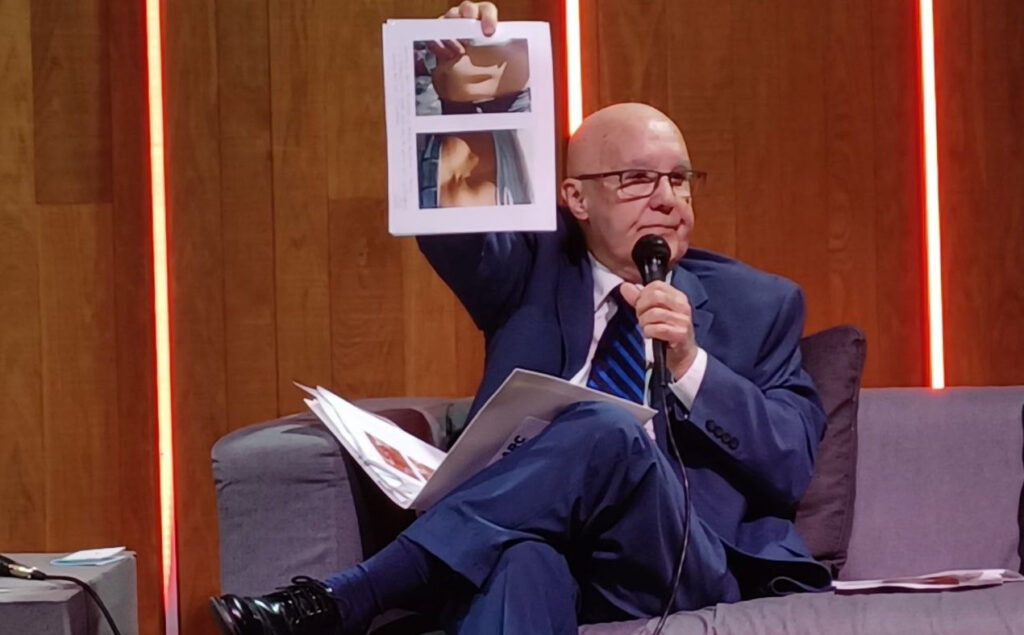
14ymedio, Madrid, Rosa Pascual, 18 March 2024 — More than 4,000 miles away from Santiago de Cuba, in Madrid, there was talk this Monday night of the protests that took place in the eastern capital and other cities of the Island. “Let’s keep present in our thoughts the people who are in the streets right now,” said Javier Larrondo, founder of Prisoners Defenders, at the beginning of the part dedicated to Cuba in Faces of Torture, autocracies in Latin America.
Leopoldo López, general secretary of the World Liberty Congress, which organized the event with the support of the Human Rights Foundation (HRF), had inaugurated a conference for victims of the tyrannies of Bolivia, Nicaragua, Venezuela and Cuba, asking for the unity of the citizens of all countries living under an autocratic regime. “Human rights have no borders; human rights cannot be defended on islands, without understanding that every human being has the same rights, regardless of where he lives,” said the Venezuelan opponent, exiled in Spain since October 2020.
Both he and former Bolivian senator Zvonko Matkovic, who spent ten years in pretrial detention without trial, insisted on the union of the activists of the four countries in response to the authoritarian regimes, all members of the Puebla Group. “The rulers help each other, and we also have to help each other.”
“They have the whole society on its knees. They need to establish terror in society. That’s why they torture those who have the audacity and courage to face them”
Along with Larrondo, the voice of Cubans was represented by Luis Zúñiga, a former political prisoner described by the regime as an “anti-Cuban terrorist,” who began by exposing how Castroism has used the Armed Forces from the beginning to torture and repress the Cuban people. “They have the whole society on its knees. They need to establish terror in society. That’s why they torture those who have the audacity and courage to face them,” he said.
Zúñiga, who silenced the already sensitized audience by telling how he and other prisoners covered their ears with threads pulled out of their underwear so as not to hear the screams of the tortured, detailed the process of accelerated establishment on the Island of a terror based on that of the Stalinist regime. To illustrate, he gave a figure.
Before 1959, there was a prison for each province in Cuba, which then numbered 6, and now number 15. After, 240. “On an island of 11 million inhabitants. So that you understand the level of repression that has been experienced in Cuba for 65 years.” In the 1960s, he said, there were 120,000 political prisoners, “recognized by Fidel Castro and commented on at the United Nations.” He showed a photograph of a walled cell, like the one in which he himself spent nine of the 19 years he was in prison. “There is no window in the cell, and that’s where you live. You live perpetually in that twilight,” he added.
Zúñiga also spoke of the Cuban presence in Angola and showed photographs from the ’11J’ demonstrations of the wounded and beaten. By criticizing the regime, Cubans can lose their jobs and, even worse, their freedom. In addition, he stressed, Cuba is the model to follow for the rest of the autocratic countries in the region. “They have two strategies: one for friendly countries, which are Nicaragua, Venezuela, Brazil and Honduras; and another for other countries, such as Colombia, Chile, Argentina, Uruguay.” In the former,


